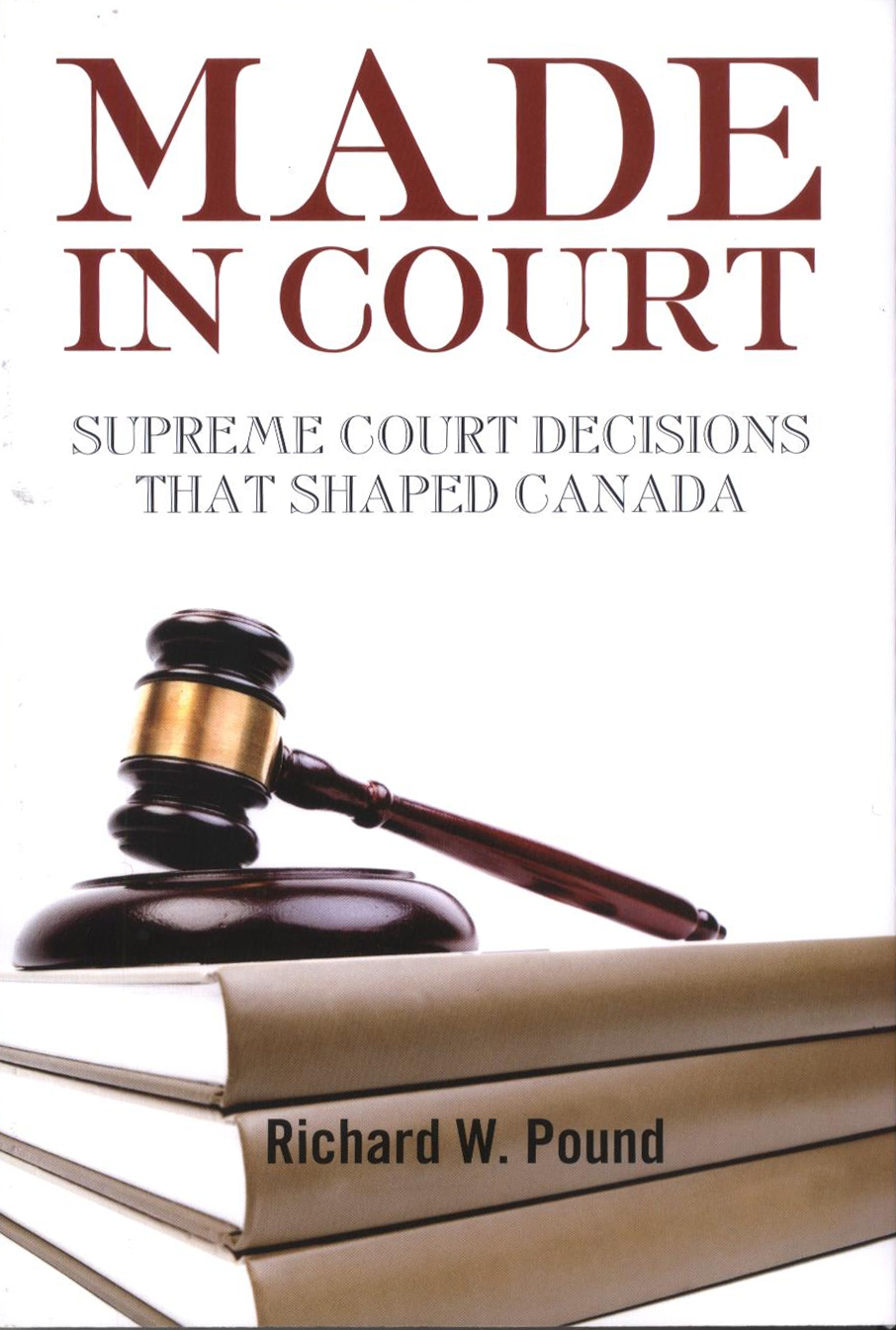Supreme Court decisions that shaped Canada by Richard W. Pound

Canada has a rich and complex history and a constitution provided to it by the British Parliament three and a quarter centuries after it was first inhabited by people largely of European descent. That feature of its history was the result of a treaty between Britain and France signed in 1763, pursuant to which France ceded all its claims to North America save for two tiny islands in the Gulf of St. Lawrence to be used as victualing ports for its fishing fleet.
The constitution reflected the complex history and had the additional complication of having been superimposed over whatever legal rights to the territory were possessed by its aboriginal peoples. The constitution contemplated a federal state, with powers distributed between the federal and provincial governments. Until 1949, the British Privy Council maintained and exercised an avuncular power of final disposition of appeals originating in Canada, a jurisdiction now exercised solely in Canada by the Supreme Court of Canada.
This book presents more than fifty of the Supreme Court’s most influential decisions, each with an analysis of how these judgments have shaped Canadian values and society, for today, in the past, and in the future. Right or wrong, its decisions have a significant impact on the lives of all Canadians. Richard W. Pound, Q.C., Ad. E. is Counsel in the Montreal office of Stikeman Elliott LLP and is a member of the Bars of Quebec and Ontario. He is Chancellor Emeritus of McGill University, having served for ten years as Chancellor and five as Chair of the Board of Governors. He is a member of the International Olympic Committee, a past president of the Canadian Olympic Committee and is a member of the International Council of Arbitration for Sport. He has written extensively and been published on legal, sport and historical matters.












